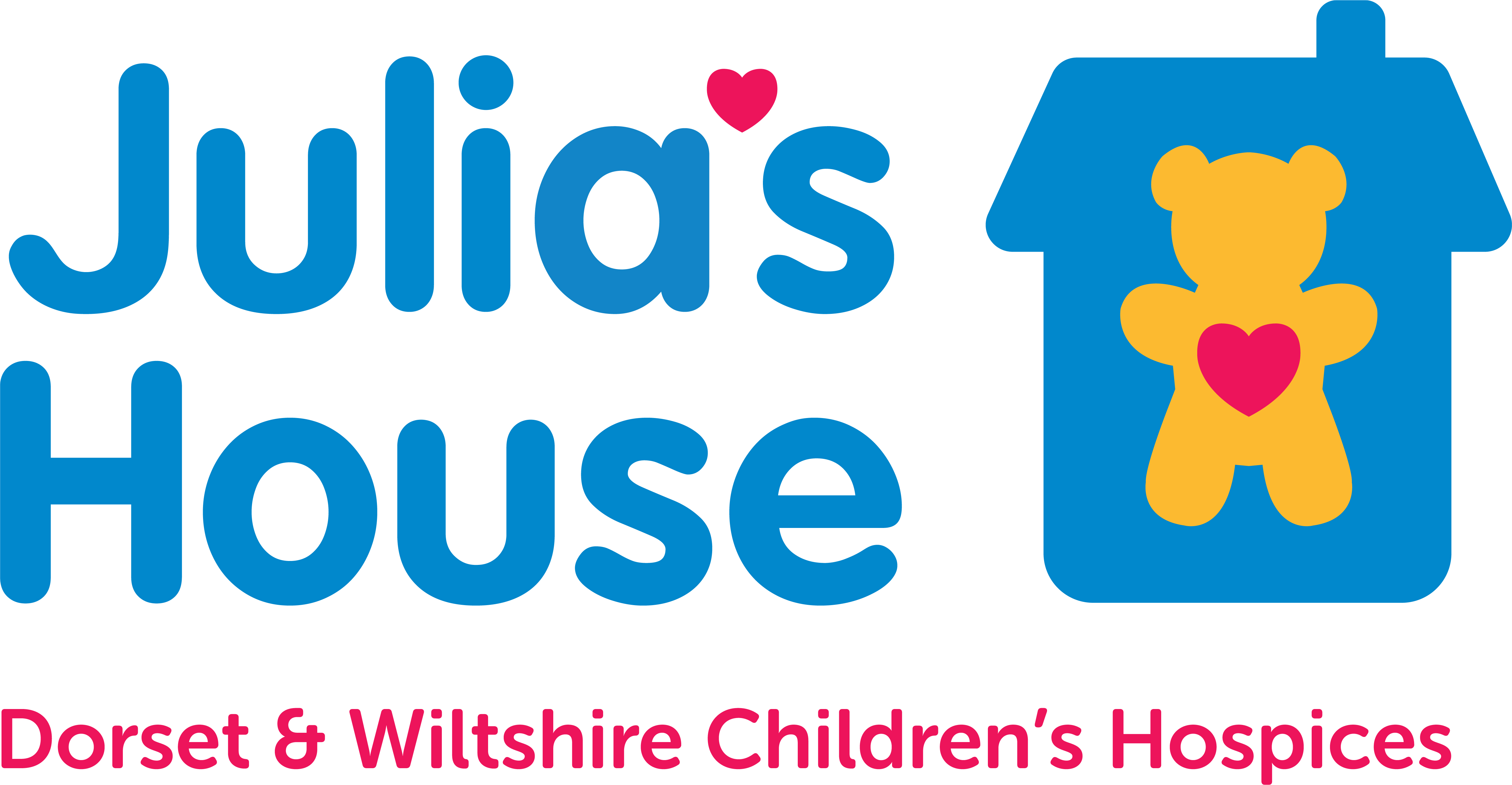Julia’s House cares for some of the most seriously ill children in the heart of your community.
Meeting the clinical, physical and emotional needs of these local children as well as providing much needed support at the end of their lives, is an essential part of our free-of-charge service. We also provide vital breaks for the whole family, giving practical and emotional support – and a healthy dose of fun.
Here's an introduction to some of the Julia’s House family…
It’s a sibling thing

When she’s not dressed as a dinosaur, you’ll mostly find Tracey Griffin hanging from a rope swing, hunting for sticks in a park, or elbow deep in paints. Her role as a Sibling Worker for Julia’s House is all about giving brothers and sisters of seriously ill children the chance to have some fun and be themselves. Along with all the play, Tracey is also there to offer emotional support to the siblings.
“We’ll do whatever activities they love to do and it helps me to build a relationship with them so they can talk to me if and when they need to,” she says.
Tracey also hosts events for the Julia’s House siblings, where they have the opportunity to socialise with other children in a similar situation. The siblings meet virtually at the moment, but they hope to get together at our hospices and out in the community as soon as it’s safe to do so.
Healing hands

Complementary therapist, Emma Comfort, treats children, mums, dads, siblings and sometimes the whole family, at the hospice or virtually during the pandemic.
“I specifically tailor my massage treatments to the individual, right down to the oils I custom-blend to suit the mood or moment,” says Emma, who regularly sees what a difference a few moments of calm and a comforting touch can make.
“It can help with a whole range of medical issues for the children and muscle strains for parents continually lifting a child. The biggest need though is for relaxation, especially for parents who are sleep deprived and anxious. An hour of treatment can make a significant difference to well-being and their ability to cope. When they have a treatment it’s like they finally have permission to let go of all that tension and sleep. It’s not pampering, it’s a vital reboot. During the pandemic, I’ve been teaching parents and siblings how to massage their child and each other via Zoom. It’s been so good to help even in such a small way.”
More than child’s play

“Play at Julia’s House focuses on what children can do and not what they can’t,” says play specialist, Lisa Magill. “It’s so important for the families as their lives can be taken over by medical needs and full time care.”
Each child has their own play plan and Lisa works closely with the family, nurses, carers and other health professionals, such as speech and language therapists. During the pandemic, play support has been provided mostly virtually with story times, activity sessions that explore all the senses and some one-to-one sessions with children.
“It has been challenging,” Lisa shared, “normally we would be playing with the children at home or in the hospice, so we always need to have a plan B or C to hand! But working virtually does have benefits. I’ve been helping a child who’s just had a feeding tube removed, so eating was going to be a completely new experience for him. So, we’ve been slowly introducing him to textures and tastes from crunchy cereals to fruit puree all through the power of play to make it a fun and positive experience.
"I’ve been on the screen and mum has been there with him every step of the way, so she’s been really involved. We had a real breakthrough when he started to put food-covered hands in his mouth. That was a huge achievement!”

